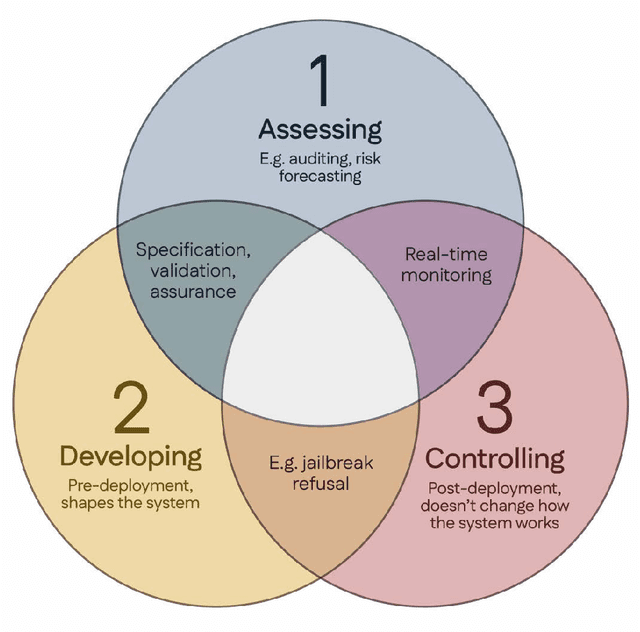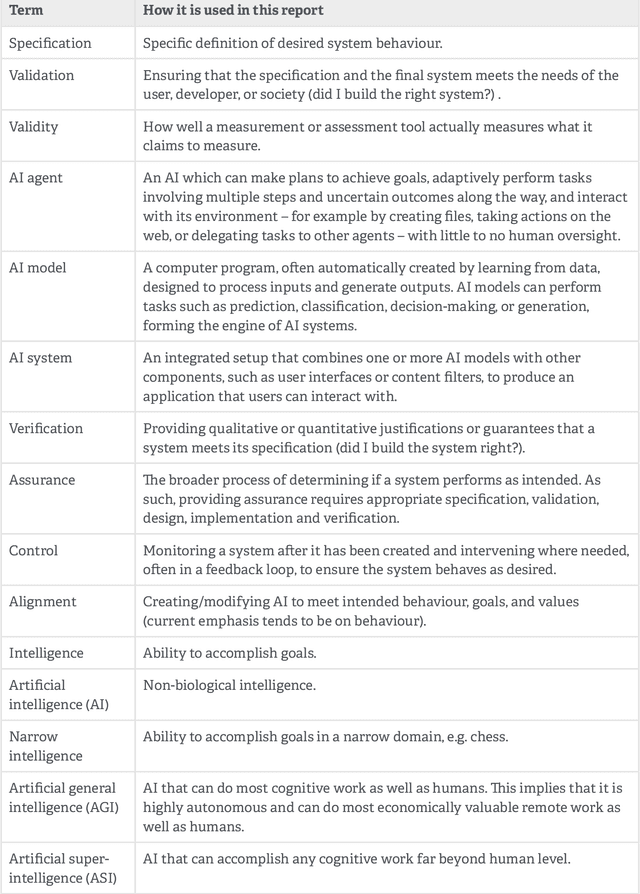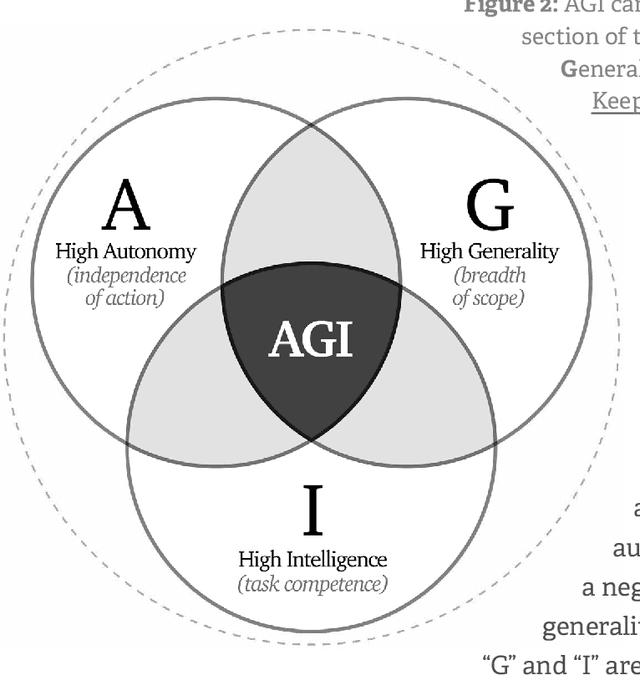Alejandro Ortega
The Singapore Consensus on Global AI Safety Research Priorities
Jun 25, 2025


Abstract:Rapidly improving AI capabilities and autonomy hold significant promise of transformation, but are also driving vigorous debate on how to ensure that AI is safe, i.e., trustworthy, reliable, and secure. Building a trusted ecosystem is therefore essential -- it helps people embrace AI with confidence and gives maximal space for innovation while avoiding backlash. The "2025 Singapore Conference on AI (SCAI): International Scientific Exchange on AI Safety" aimed to support research in this space by bringing together AI scientists across geographies to identify and synthesise research priorities in AI safety. This resulting report builds on the International AI Safety Report chaired by Yoshua Bengio and backed by 33 governments. By adopting a defence-in-depth model, this report organises AI safety research domains into three types: challenges with creating trustworthy AI systems (Development), challenges with evaluating their risks (Assessment), and challenges with monitoring and intervening after deployment (Control).
A proposal for an incident regime that tracks and counters threats to national security posed by AI systems
Mar 25, 2025
Abstract:Recent progress in AI capabilities has heightened concerns that AI systems could pose a threat to national security, for example, by making it easier for malicious actors to perform cyberattacks on critical national infrastructure, or through loss of control of autonomous AI systems. In parallel, federal legislators in the US have proposed nascent 'AI incident regimes' to identify and counter similar threats. In this paper, we consolidate these two trends and present a proposal for a legally mandated post-deployment AI incident regie that aims to counter potential national security threats from AI systems. We start the paper by introducing the concept of 'security-critical' to describe doctors that pose extreme risks to national security, before arguing that 'security-critical' describes civilian nuclear power, aviation, life science dual-use research of concern, and frontier AI development. We then present in detail our AI incident regime proposal,, justifying each component of the proposal by demonstrating its similarity to US domestic incident regimes in other 'security-critical' sectors. Finally, we sketch a hypothetical scenario where our proposed AI incident regime deals with an AI cyber incident. Our proposed AI incident regime is split into three phases. The first phase revolves around a novel operationalization of what counts as an 'AI incident' and we suggest that AI providers must create a 'national security case' before deploying a frontier AI system. The second and third phases spell out that AI providers should notify a government agency about incidents, and that the government agency should be involved in amending AI providers' security and safety procedures, in order to counter future threats to national security. Our proposal is timely, given ongoing policy interest in the potential national security threats posed by AI systems.
Open Problems in Mechanistic Interpretability
Jan 27, 2025



Abstract:Mechanistic interpretability aims to understand the computational mechanisms underlying neural networks' capabilities in order to accomplish concrete scientific and engineering goals. Progress in this field thus promises to provide greater assurance over AI system behavior and shed light on exciting scientific questions about the nature of intelligence. Despite recent progress toward these goals, there are many open problems in the field that require solutions before many scientific and practical benefits can be realized: Our methods require both conceptual and practical improvements to reveal deeper insights; we must figure out how best to apply our methods in pursuit of specific goals; and the field must grapple with socio-technical challenges that influence and are influenced by our work. This forward-facing review discusses the current frontier of mechanistic interpretability and the open problems that the field may benefit from prioritizing.
 Add to Chrome
Add to Chrome Add to Firefox
Add to Firefox Add to Edge
Add to Edge